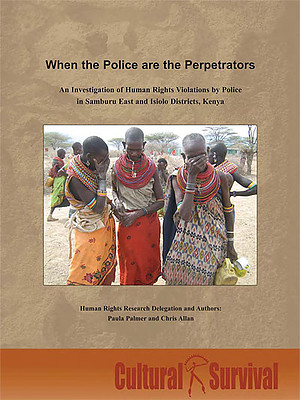"On behalf of the Pastoral Nomadic Indigenous Samburu Community of Northern Kenya: the local leaders, the elders, the counselors, the mothers, the children and our Member of Parliament, The Hon Raphael Letimalo, please accept our heartfelt indigenous greetings: Supa! We convey our gratitude to you and your team of experts for your visit to our pastoral region of Samburu East.

